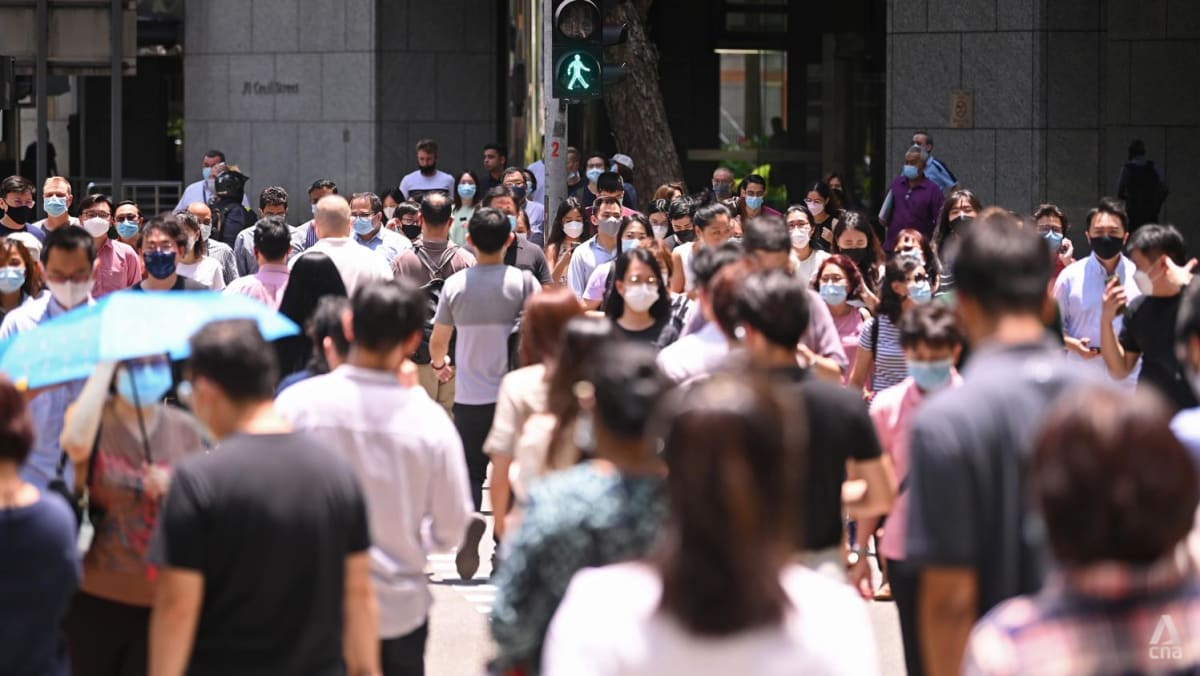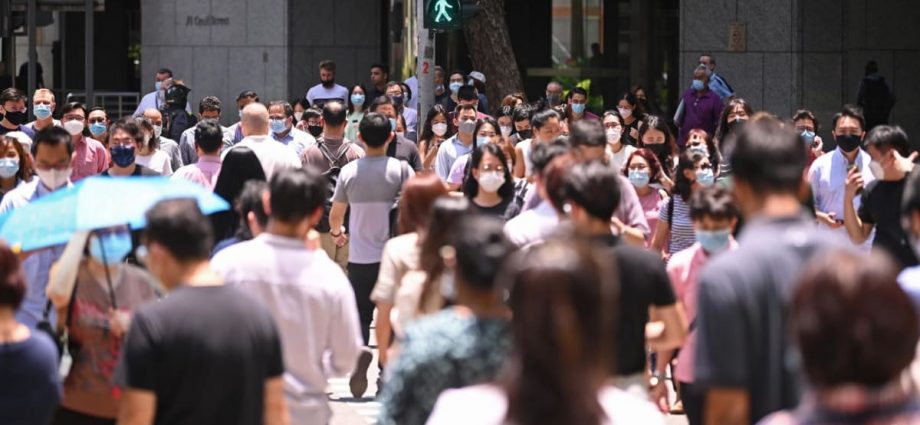
GLOBAL ECONOMIC CONDITIONS HAVE CHANGED
On the economy, Mr Lee said Singapore has emerged strongly from the pandemic, with most sectors steadily recovering.
Although the war in Ukraine has clouded the outlook, authorities continue to expect positive growth this year. Official estimates are for the economy to grow between 3 and 4 per cent in 2022.
But the “basic reality is that international economic conditions have fundamentally changed”, he said.
Mr Lee described the recent decades as “an exceptional period” with globalisation in full swing, international trade seeing rapid growth, China’s economy growing exponentially and exporting goods at highly competitive prices to the world.
This brought down the cost of many products and kept prices around the world very stable, he added.
However, “this era is now over” as China’s growth and exports slow. Some countries, particularly the United States and China, are raising tariffs against each other, while others are relooking supply chains to prioritise resilience and self-sufficiency. Meanwhile, companies are opting for “just-in-case”, instead of “just-in-time” production.
All these trends are raising costs and pushing up inflation everywhere, including in Singapore, he said, adding that Singapore does not “have much influence over this global inflation picture”.
“What is within our power is to make ourselves more productive and competitive. Then our workers can earn more, and more than make up for the higher prices of food, fuel and other imports,” the Prime Minister said.
“That way we can all become better off, in real terms.”
To achieve that will require Singapore to press on with economic upgrading and restructuring, double down on transformation efforts and encourage workers to upgrade their skills at every opportunity, he said.
Apart from rising prices, there are also disruptions in physical supplies. Apart from Malaysia’s export ban on chickens, Indonesia also temporarily halted palm oil exports when high cooking oil prices became a political issue. India also recently banned wheat exports to keep domestic wheat prices down.
“Under pressure, faced with food shortages and rising prices, governments will put their domestic needs first,” said Mr Lee. “So we must expect more arbitrary actions like these, which will impact us.”
While Singapore, as a small and open economy, is heavily dependent on imports, it is “not helpless” as authorities have been actively diversifying the country’s import sources.
These range from building up adequate stockpiles of food and medical essentials, investing in agri-tech to make local farms more efficient and productive, as well as pushing ahead with the goal to be able to produce 30 per cent of the country’s nutritional needs locally by 2030.
These efforts were redoubled during the pandemic, Mr Lee said.
“It costs money to make our supplies more resilient. Buying from diversified sources means we don’t just buy from the cheapest or the most convenient producer. Maintaining stockpiles requires space and incurs costs.
“But we must think of it as paying for insurance.”

